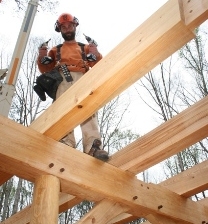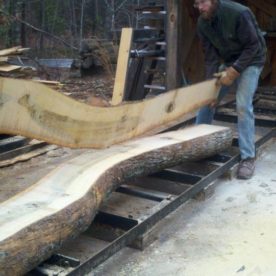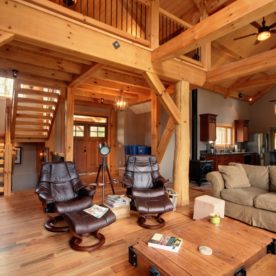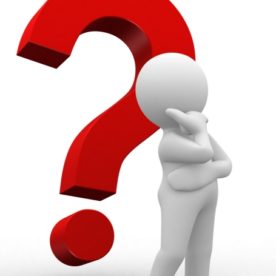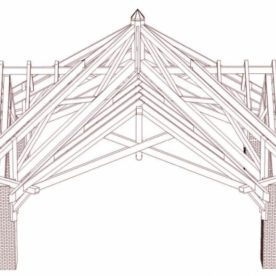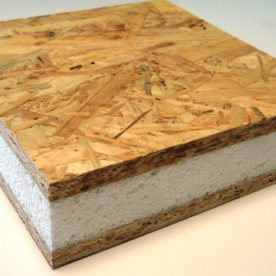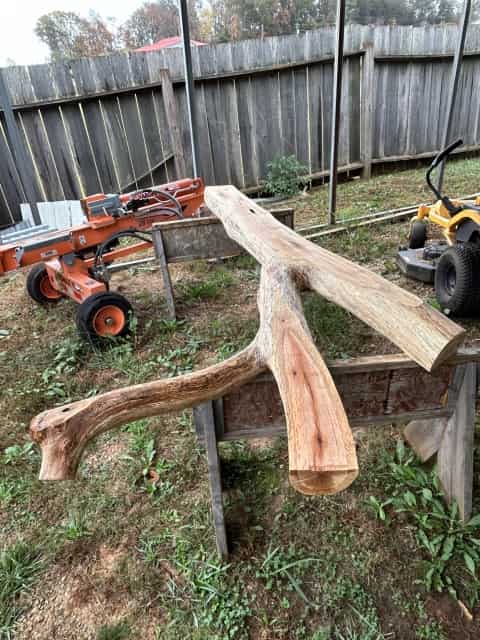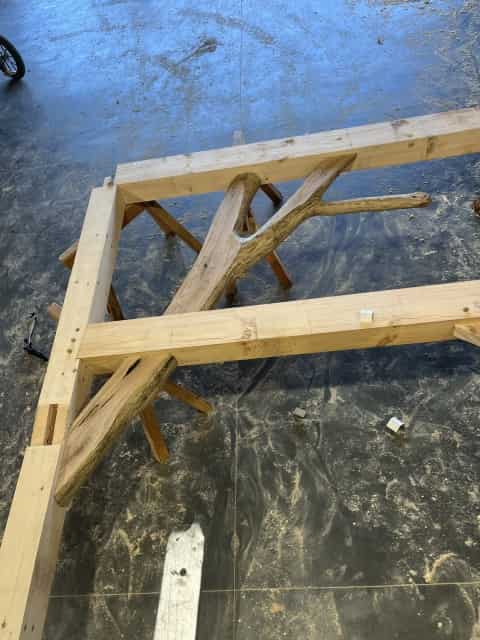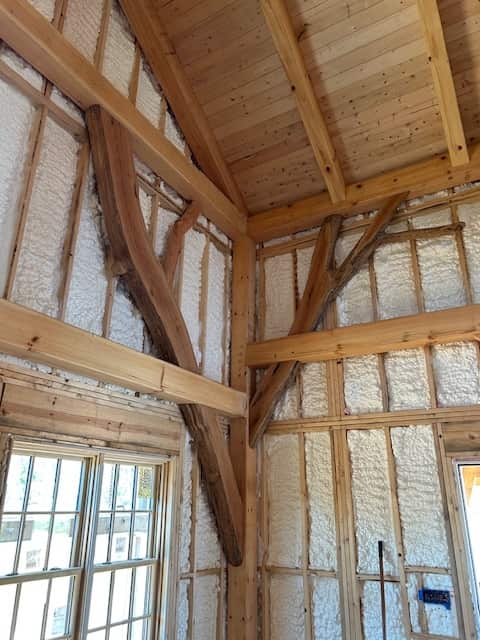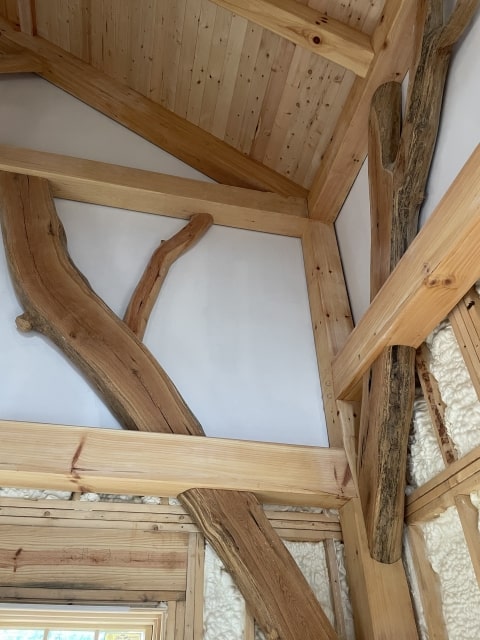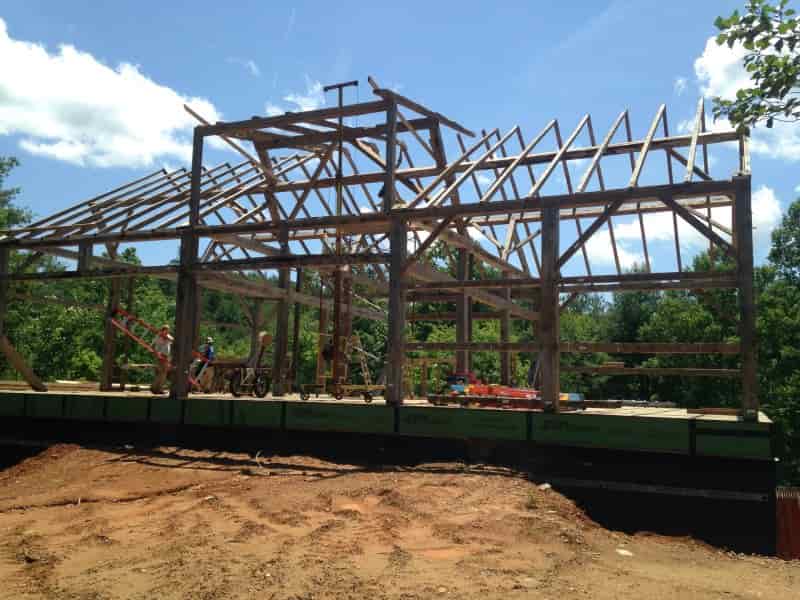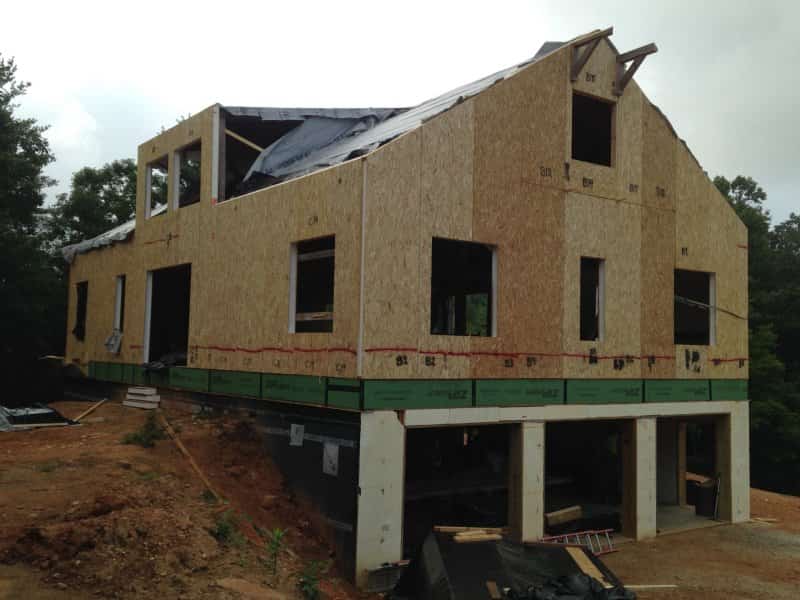The dictionary defines a curve as a change from a straight line or shape into a smooth, rounded one. We define a curve as a method to add visual interest and personality to your timber frame. Whether you add one or many, consider including curved timbers in your project!
Straight lines can become boring when not broken up or changed. Curved lines provide relief and balance. They offer a human quality to a space and suggest movement.
However you define a curve and where ever you want to use them, the result can be as understated or dramatic as you choose. Think about adding curved timbers to your timber frame.
Featured Curved Timbers
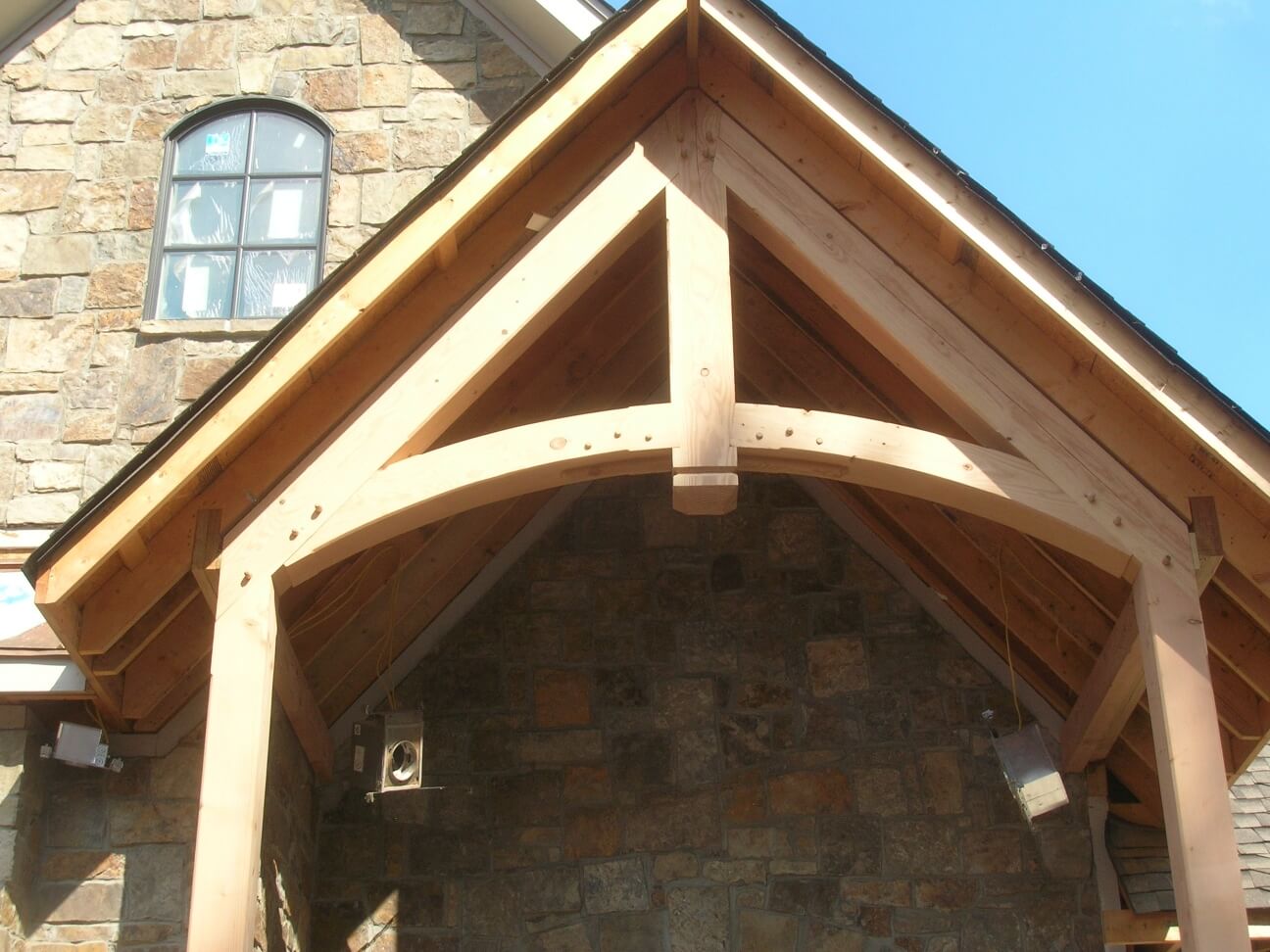
Welcoming curved bottom chord truss on entry porch
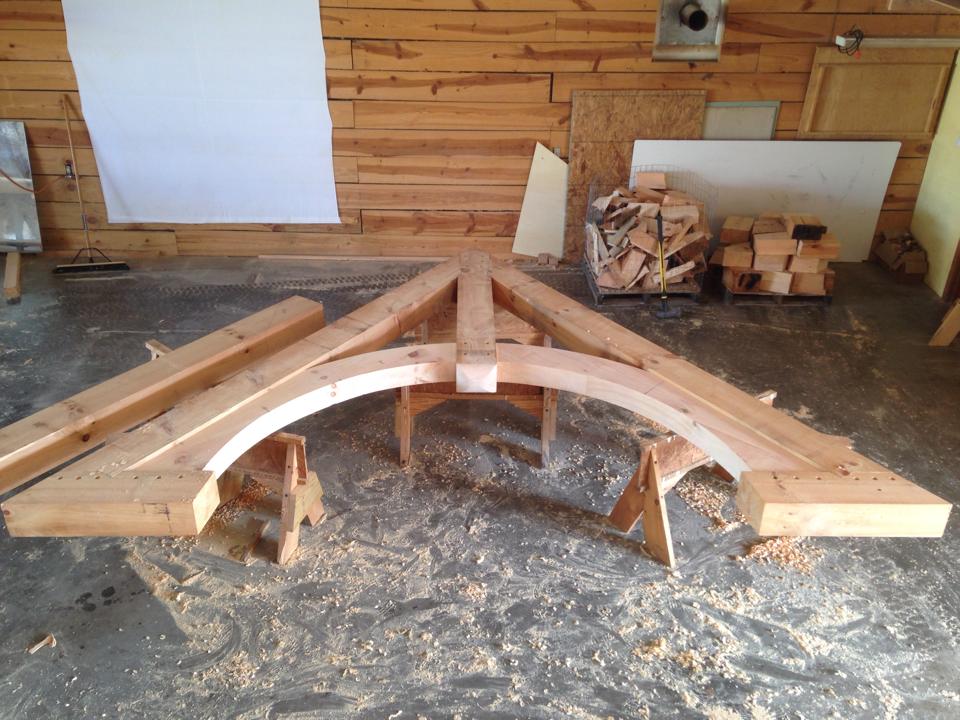
Curved king post truss being fit up in the shop
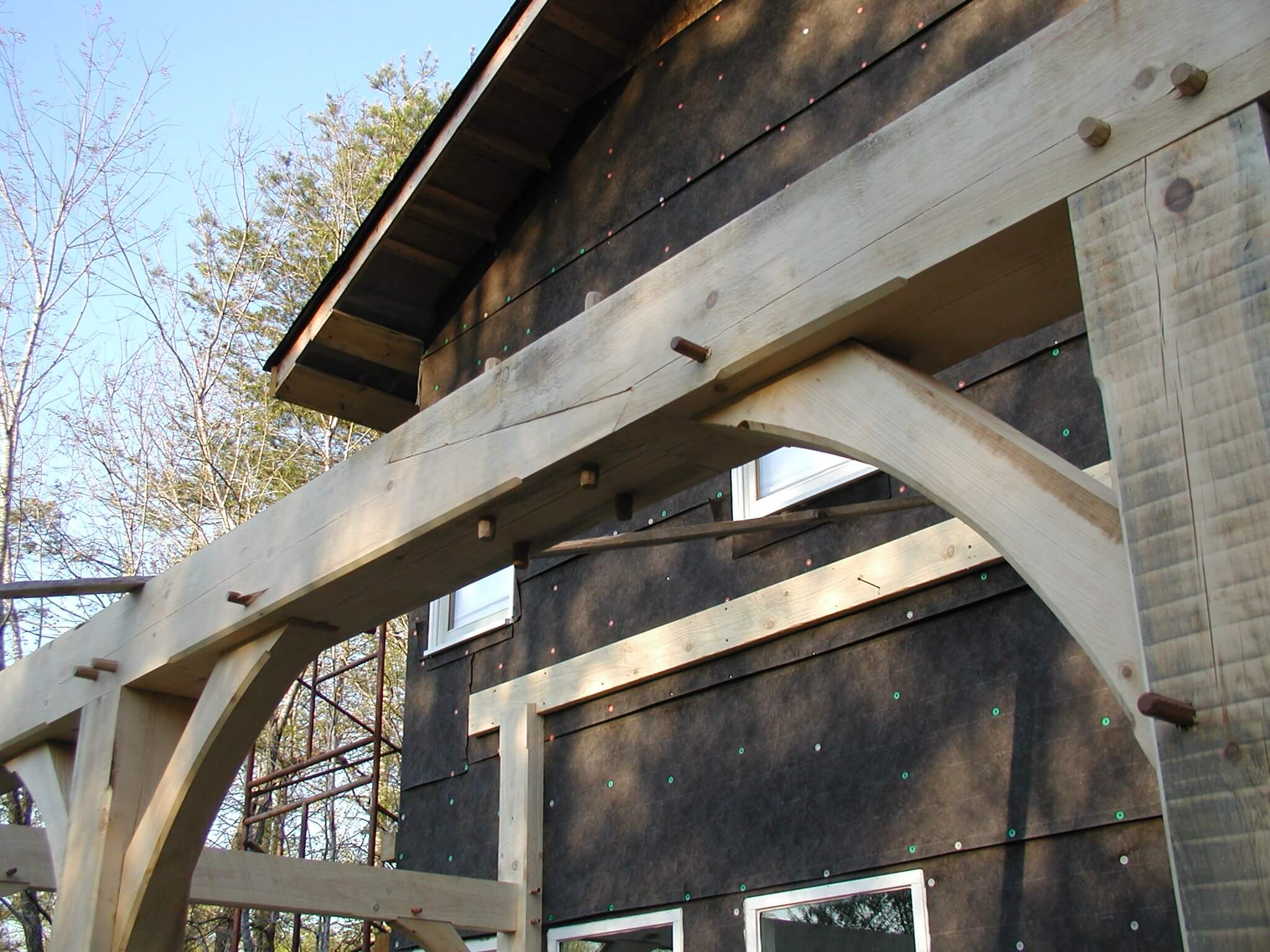
Curves can be used to create "softer" looking knee braces
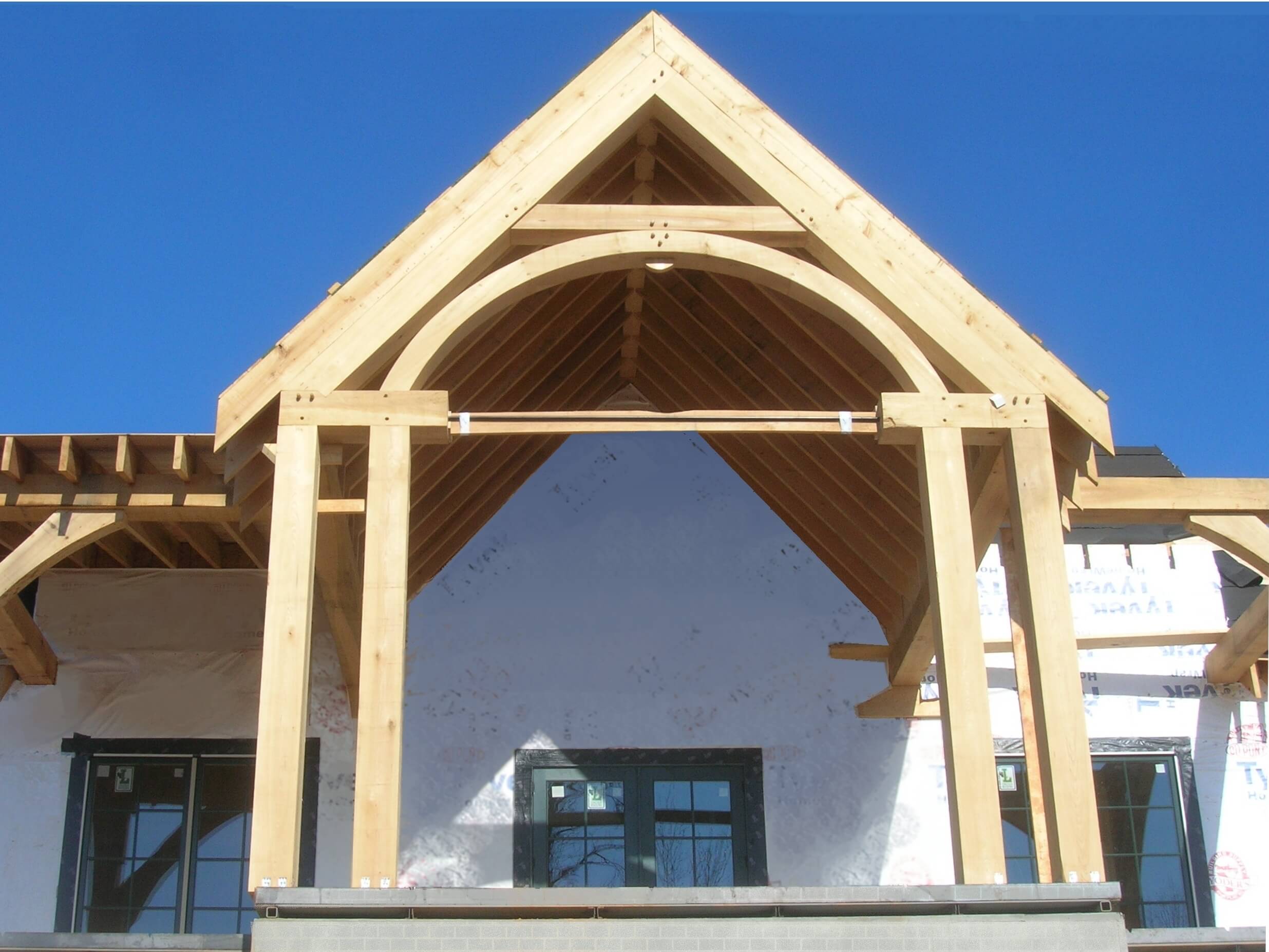
Curved hammer beam truss on stately entry porch
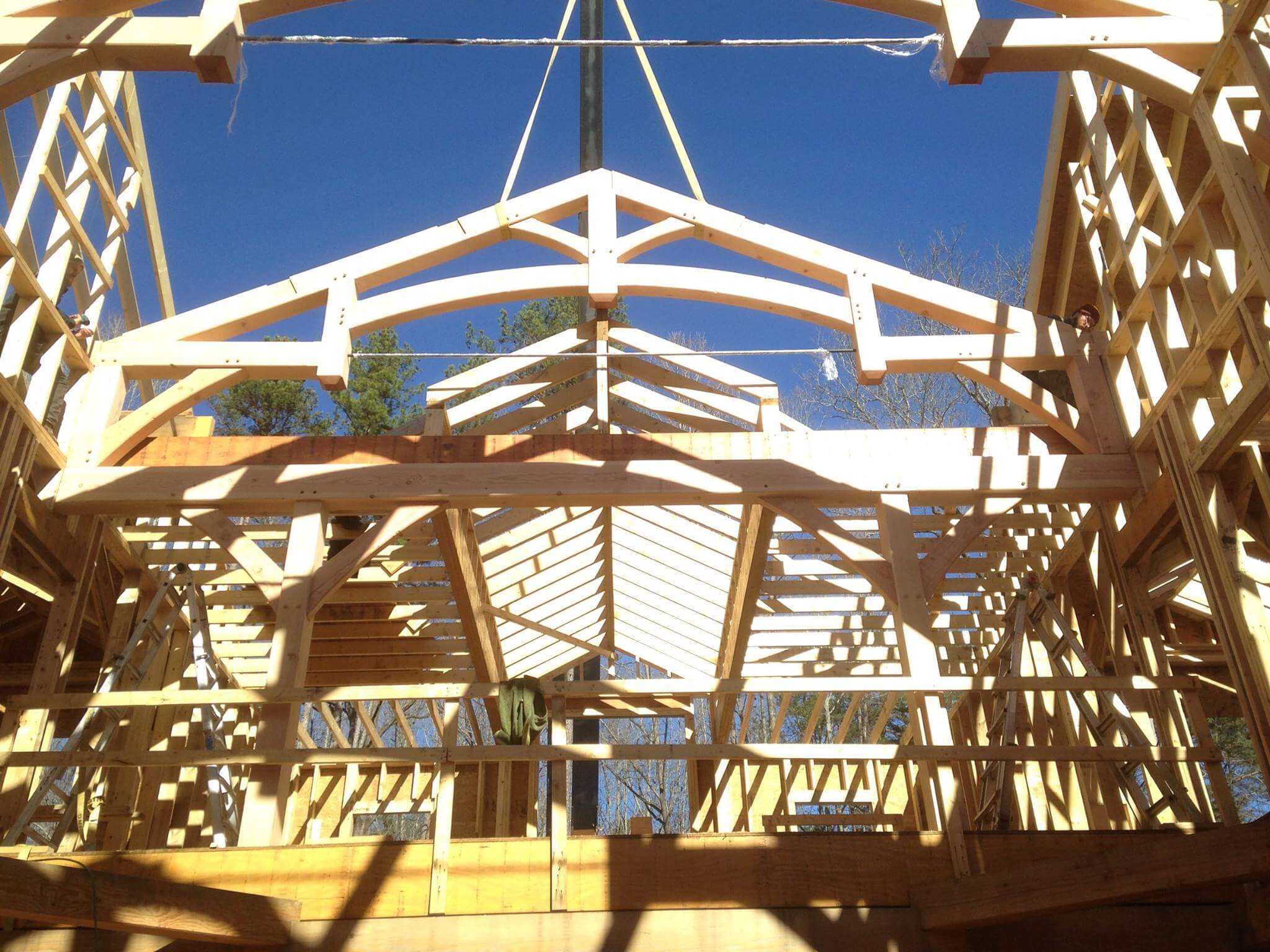
Raising a large, dramatic curved truss in great room
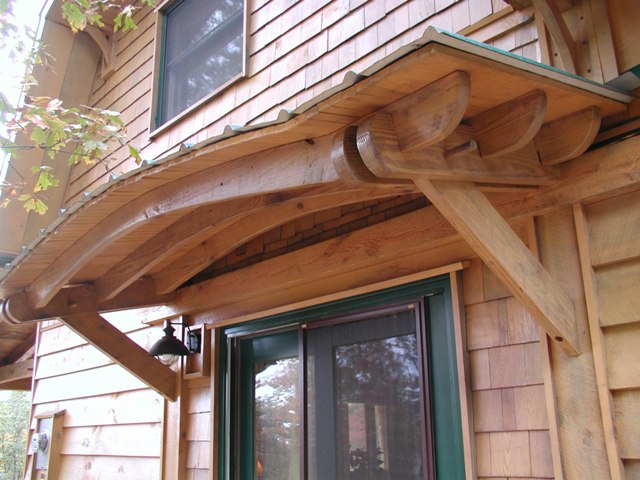
Curved timber framed awning adds personality to this entry
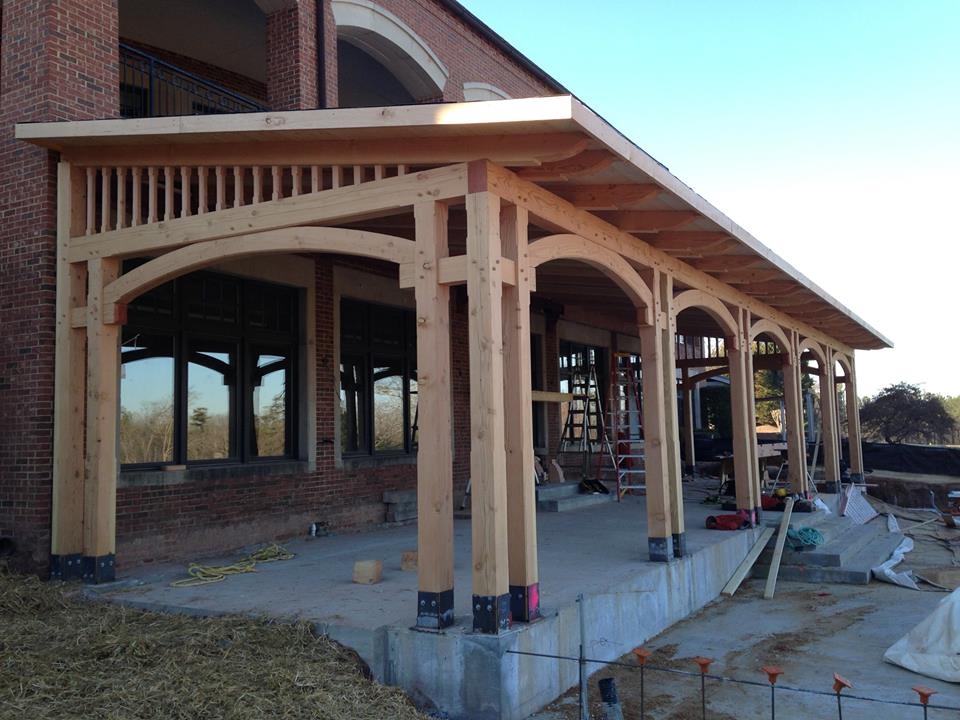
Curved support beams create visual interest to this large porch
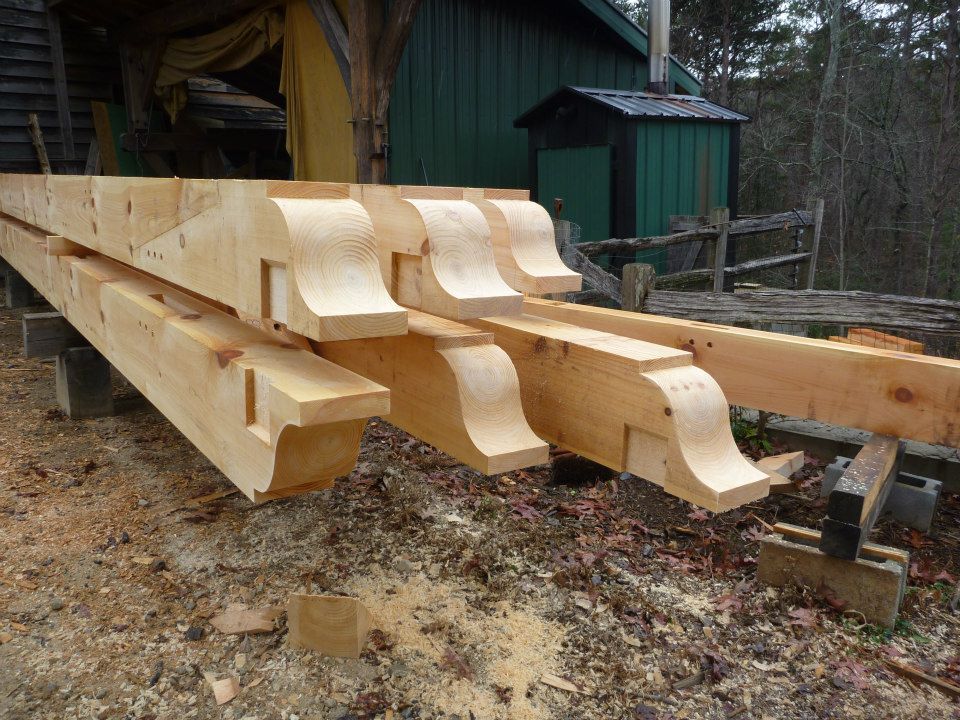
Curves can add an interesting detail to rafter tails
Curves can be used as a single focal point or as a style featured throughout a timber frame. Both interiors and exteriors of structures benefit visually from the addition of curved timbers, whether they present a contrast or a theme.
Why are curves so appealing? One theory asserts that a region of our brain involved in processing fear is activated when presented with objects that have sharp angles. Another theory: Straight lines are not often found in nature. Curves are associated with natural landscapes and forms that we find beautiful. Whatever the reason, we'd love to include curves in your future timber frame project!
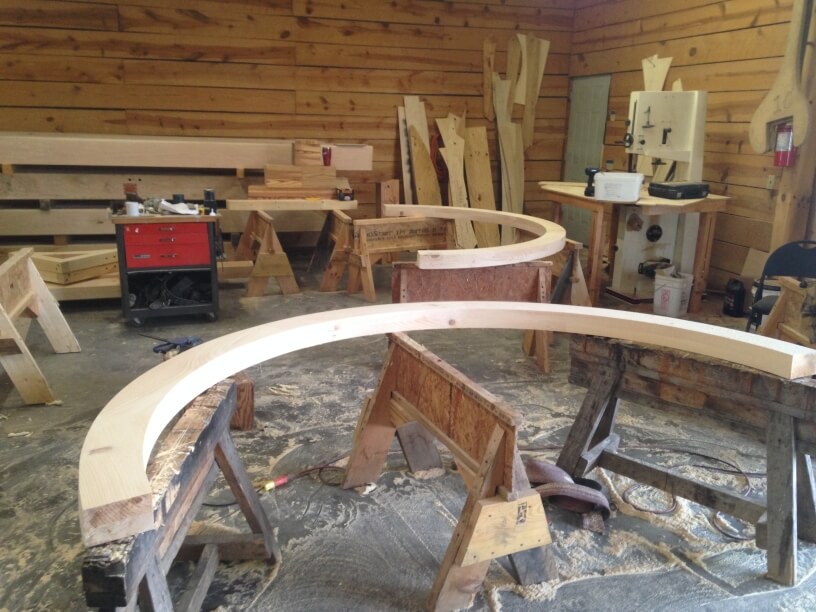
Cutting curves in the shop
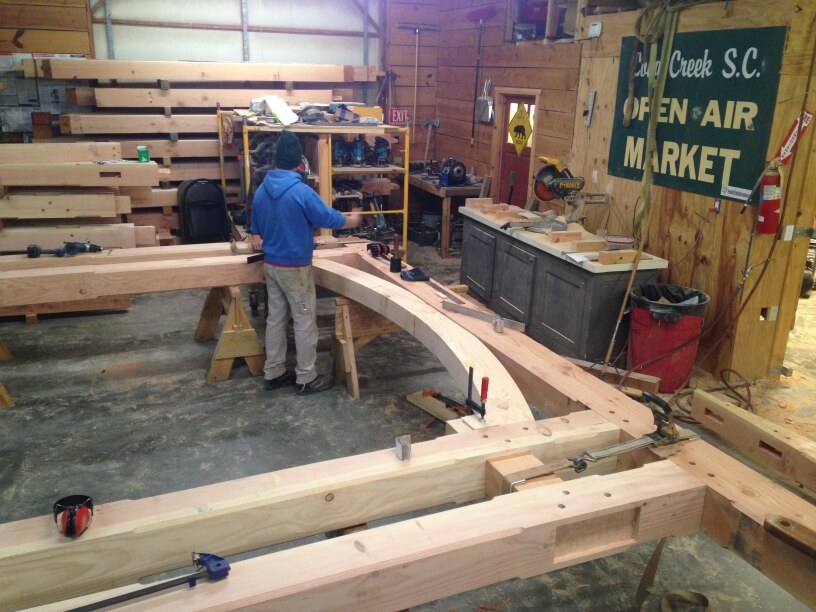
Attaching curved bottom chord to posts






